Sarah Miller doesn’t particularly enjoy living in Nevada City (though she has for 13 years), but she does like complaining about it. Taking in the world and railing against its complexities and contradictions is part of the fun of life for the freelance essayist, who writes cultural criticism and creative nonfiction and reports on climate change. She even “loves it when people hate things she loves.”
A regular contributor to The New Yorker website and Hodinkee, with past pieces in The New York Times, The Awl, and Marie Claire, Miller also writes her own newsletter on the publishing platform Substack. She began this weekly letter after the company offered her “a small deal” in May 2021. (Substack has built a roster of well-known writers by offering contracts structured like book advances.) While her work for The New Yorker might include “more finished cultural pieces,” criticism or reported pieces on climate change, her Substack newsletter, titled “The Real Sarah Miller,” houses more personal writing in her signature offbeat style. “I think what people can get from Substack is that it really sounds like me,” she says, noting that overediting can make some written content sound homogenous.
“The Real Sarah Miller” is available at both free and paid subscriber levels and includes multiple recurring series, such as a podcast called “Didn’t See It Don’t Need To,” wherein Miller and her friend, UC Davis film professor Joshua Clover, sound off on why they won’t see a particular movie; “Fire Season,” a diary recounting the daily anxieties of living in wildfire country; and ponderings about her anxious Australian cattle dog, Ruthie.
Miller is originally from a small town in Massachusetts and describes writing as the only thing she ever wanted to do. She studied English at Amherst College, where she read novels like “Anna Karenina” as if they were soap operas. “I always read like a fan. … But if you asked me what I had to say about it, I was like … I couldn’t believe it when she died. That was crazy.”
She got her start writing for Philadelphia Gay News and writing movie reviews for Philadelphia Weekly while living in the City of Brotherly Love after college. After stints in New York and Los Angeles, she moved to Nevada City in 2008 for a past relationship and continues to reside there with her current boyfriend. These days, Miller writes from home and drives to neighboring Grass Valley for occasional shifts at New West Wine Co., a gig she credits with helping her to “stop obsessing about writing” and space out her projects.
My outlook on making a living as a creative:
If you really want to write or do something creative, you have to really, really prioritize it or other things will just take over your life. But I don’t have any kids, and my family doesn’t live here. So I’m sort of single-focused. I’m not super mega ambitious or anything. But my writing is the center of my life. That’s not a decision that I made, it’s just kind of my constitution. That sounds really pretentious, though. (Laughs)
“My writing is the center of my life. That’s not a decision that I made, it’s just kind of my constitution. That sounds really pretentious, though. (Laughs)”
Sarah Miller, freelance writer
How I describe a day in my life:
I’m a slug. I get up, I drink coffee in bed, I do some work in bed. And if I have a deadline, (I’ll work every day). For the last eight weeks, I worked all day almost every day, except for Thanksgiving day, just writing. It was exhausting. I wrote four Hodinkee stories and I was writing New Yorker stories.
I don’t leave the house. I don’t do anything. I’m very short with people that get in touch with me. I’m just like, I’m busy. It’s not that I’m, oh my God, I’m a genius. It’s just … I can only do one thing at once.
Or, I do no work, where I do errands, I go use my friend’s Peloton, I make dinner, I shop. The house is clean. I do errands for my boyfriend. I go into wife mode. But if I’m working, I don’t give a s— about anybody. I cannot deal at all.
What I like about publishing to the independent writing platform, Substack:
Miller, a freelance essayist known for her idiosyncratic style,
writes cultural criticism, creative nonfiction and reports on
climate change.
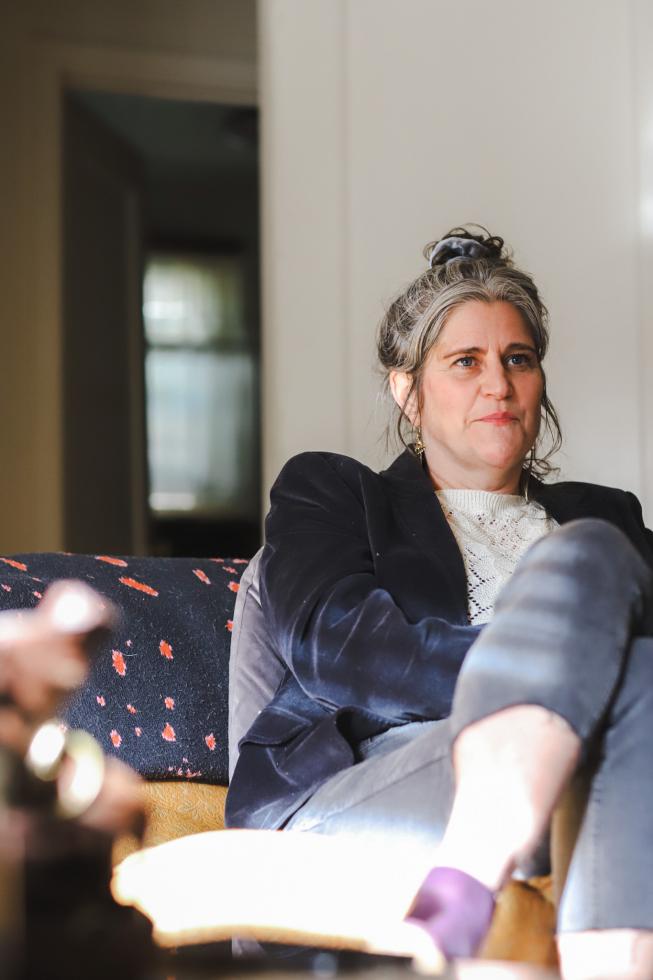
I feel like a lot of stuff gets edited too much. I have kind of an idiosyncratic way of expressing things, and sometimes (editors) go in there and neaten it all up. And I’m just like, now I sound like everybody else. But I’m not anti-editing. I do like having someone look things over. I really like it, for example, when someone goes in and takes out like a paragraph or a three page story and they’re like, you don’t need these two paragraphs.
The inspiration behind “Fire Season,” the newsletter series about what it’s like to live near multiple wildfires:
There were no big fires in Nevada City. I was never evacuated. But there was one day where there were four fires. There were two on the ridge and one in the river canyon. Then there’s another one out in the ridge, further out. Then there was one in Grass Valley, and one somewhere else. It was 95 degrees every day for like two months and totally dry.
And it’s also the knowledge that this area is slowly becoming uninhabitable. It’s really heavy. And it’s weird on the one hand, people know that on some level, but they kind of also pretend it’s not happening. I’m 52. I want to be like, my job is going okay, and I have a nice partner and I have a nice life. But then also, my life is hell.
A lot of people really liked it, I got a lot of subscribers. I had one person quit after it was done. It was like, I only subscribe to “Fire Season.” I was like, oh, I’m sorry I’m not miserable anymore. (Laughs)
The feedback on last year’s New Yorker essay, “Cancel New Year’s Eve Forever,” which spoke to pandemic-era doldrums and the ongoing challenge to celebrate New Year’s the “right” way:
I mean, as with all extremely opinionated and semi-ridiculous pieces like that, in the sense of — why would I have the authority to cancel New Year’s — some people are like, ‘Thank you so much for doing this, thank you for speaking my truth aloud in a way I never dared or never got around to or couldn’t articulate” — and then some people are really mad that you hate this thing they love. … The only thing that upsets me is the idea that we are getting ever closer to the complete shutdown of normal functioning of ecosystems, and that’s really what my article is about.
On having a reason to put on an outfit:
I love working in the wine store so much. It makes me so happy. Because it’s very finite, people just come in there and want to buy wine and you can say, Hey, here’s a great Burgundy from France or whatever. I also know enough that I can help people, but I’m not an expert at all. I have a B-minus knowledge of wine. The owner has an A knowledge of wine.
We have really nice customers and John, the owner, has really great taste and I’m learning a lot. It’s also good to have a reason to put on an outfit rather than, like, wear a caftan.
The organizational item(s) I can’t live without:
I did just get a physical date book to write things down, which is nice because I can see it all at once. I would also say my watch, as a watch columnist. Because then I can see what time it is without having to look at my phone and get distracted by it. I’m wearing a 1969 Luch, which is a Soviet watch.
The project I’m most proud of:
The Movie Assassin for Popula, a magazine I worked for for a couple years. It’s about me being a movie reviewer and then at the end of it, it’s about how my politics changed when I got older, basically. So it sort of segues from being about movies into more about how my ideas about the world changed.
–
Stay up to date on art and culture in the Capital Region: Subscribe to the Comstock’s newsletter today.
Recommended For You
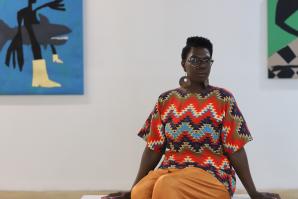
Getting to Know: Faith J. McKinnie
Gallerist Faith J. McKinnie is highlighting the work she wants to
see in her Midtown gallery that highlights contemporary art
by underrepresented artists.
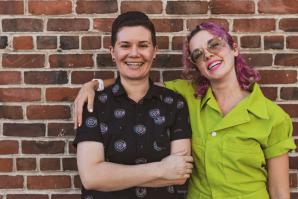
Getting to Know: Shahera Hyatt and Melissa McGillicuddy
Melissa McGillicuddy and Shahera Hyatt are hosts and
comedians of the Moving Van Show, a comedy show based out of
a rented U-Haul.
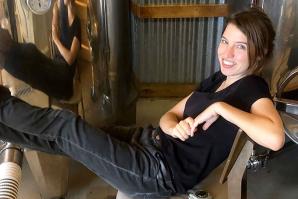
Getting to Know: Julianna Boggs
Tabeaux Cellars co-owner on building a family-run winery in Amador County
The family behind Tabeaux Cellars is not of your standard wine-country lineage. Rather, they are “just a family producing a decidedly small allocation of foothill glou glou,” as the winery’s charming Instagram bio states.
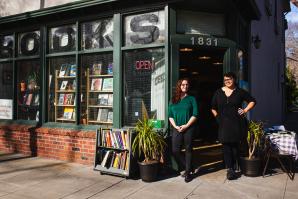
Getting to Know: Miranda Culp and Laurelin Gilmore
The owners of Amatoria Fine Art Books in Sacramento share a deep love of books
Miranda Culp and Laurelin Gilmore are accustomed to the look of
wonder on the faces of the people who stumble into their
independent bookshop, Amatoria Fine Art Books.



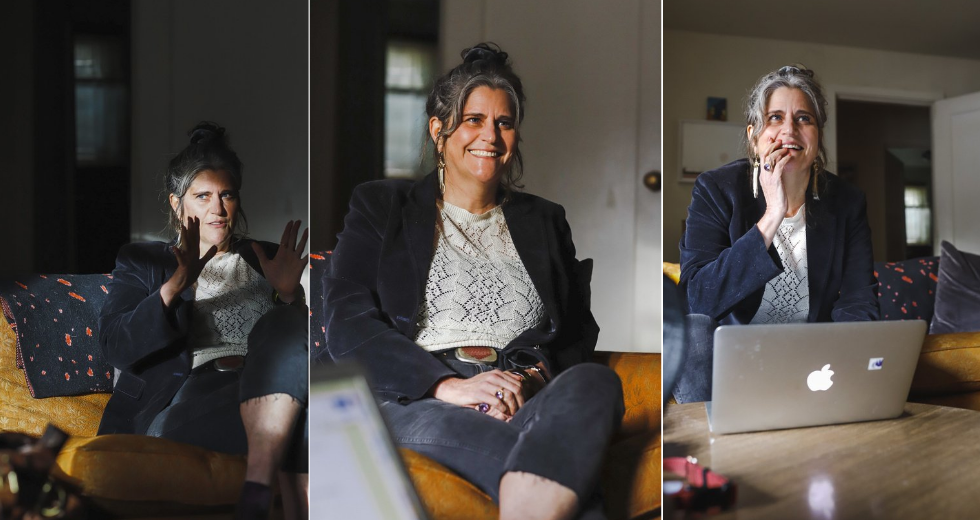
Comments
Hello Sarah
I am the owner of Detroit Antiques,Art and Design. While you were in my shop here in the Fisher Building you mentioned the possibility of having someone do an article on an art project I'm working on. What do I need to do make this happen?
Can I send you a copy of the video I had done to bolster the project?